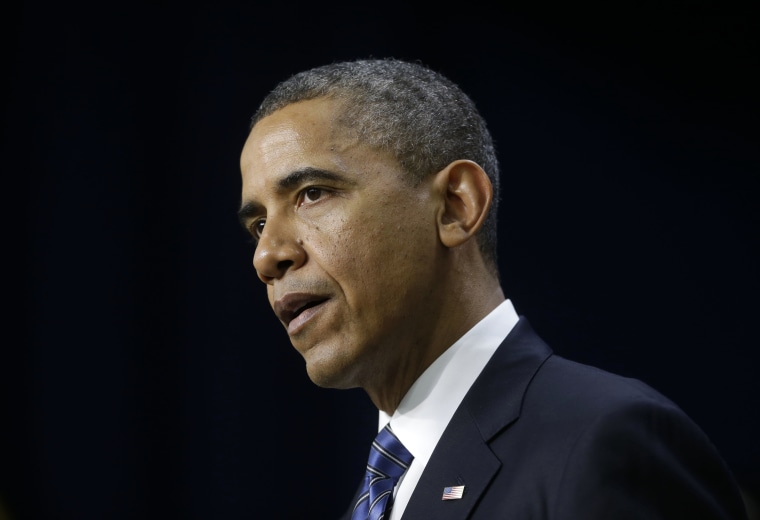After four years characterized largely by disappointment, civil liberties groups are pushing President Obama for a renewed commitment to issues like closing Guantanamo Bay, scaling back targeted killings, and trying terrorist suspects in civilian courts in a second term. But are they likely to have more success?
Late last month, a coalition of 29 groups, led by the American Civil Liberties Union (ACLU), sent a letter to Obama calling on him to veto the Defense Authorization Act if the final version impedes the closing of Guantanamo. That came on the heels of a congratulatory post-election message sent to the president by ACLU executive director Anthony Romero, urging Obama to “dismantle a national-security state where warrantless surveillance, extra-judicial killings of American citizens by drones and other attacks on our personal freedoms have been deemed acceptable.”
President Obama came to office pledging a clear break with the Bush administration’s record on fighting terrorism. But, with the exception of a ban on harsh interrogation techniques that many call torture, his policies have often mirrored those of his predecessor. After Obama last year issued an executive order continuing the Bush policy of indefinite detention, Salon’s Glenn Greenwald declared: “The most harmful aspect of the Obama legacy is that he has converted what were once controversial right-wing Bush policies into unchallenged bipartisan consensus.”
But civil libertarians say they still think at his core, Obama agrees with them, and that he may now have more political room to maneuver. “I’m optimistic that President Obama can move forward on these issues because he doesn’t have to worry in his second term about sabotaging votes for reelection,” Laura Murphy of the ACLU told msnbc.com.
And, they argue, there are fewer distractions now than before. “In his first term, he had other priorities, such as health care and focusing on the economy,” said Liza Goitein of the Brennan Center for Justice.
But with the economic recovery still fragile and high-profile budget negotiations currently consuming Washington, those other issues haven’t gone away. And polls suggest there’s little public hunger for a shift in course in the administration’s approach to fighting terrorism.
“The public knows that there has been no second 9/11-scale attack and no new land invasion of an Asian country that costs American lives,” said Heather Hurlburt, executive rirector of the National Security Network. “It seems successful to them.”
Beyond professional civil libertarians, there are few signs that the broader progressive community is readying to hold Obama’s feet to the fire, not long after the organized left rallied strongly to his re-election campaign.
“I'm not seeing much evidence that liberals are putting more pressure on him since the election—and I'm not sure it would make a huge difference,” said Michael Cohen, a former Democratic speechwriter and foreign policy expert, noting that criticism from groups like the ACLU appeared to have little impact in Obama’s first term.
And Republicans in Congress are hardly likely to go along with any push by the administration in the direction of civil liberties. “Congress is a major impediment to the release of detainees, they put up major roadblocks” in Obama’s first term, says Vince Warren of the Center for Constitutional Rights, warning they’re likely to do so again.
And major new challenges in the fight against terror are likely to pop up, emboldening those raising concerns about taking tactics off the table. Hurlburt named Mali, where al Qaida has been gaining ground, as the next focus of attention.
“We will never run out of people who see violence as the solution to terrorism problems,” she said. “You’ll always be able to find targets.”
